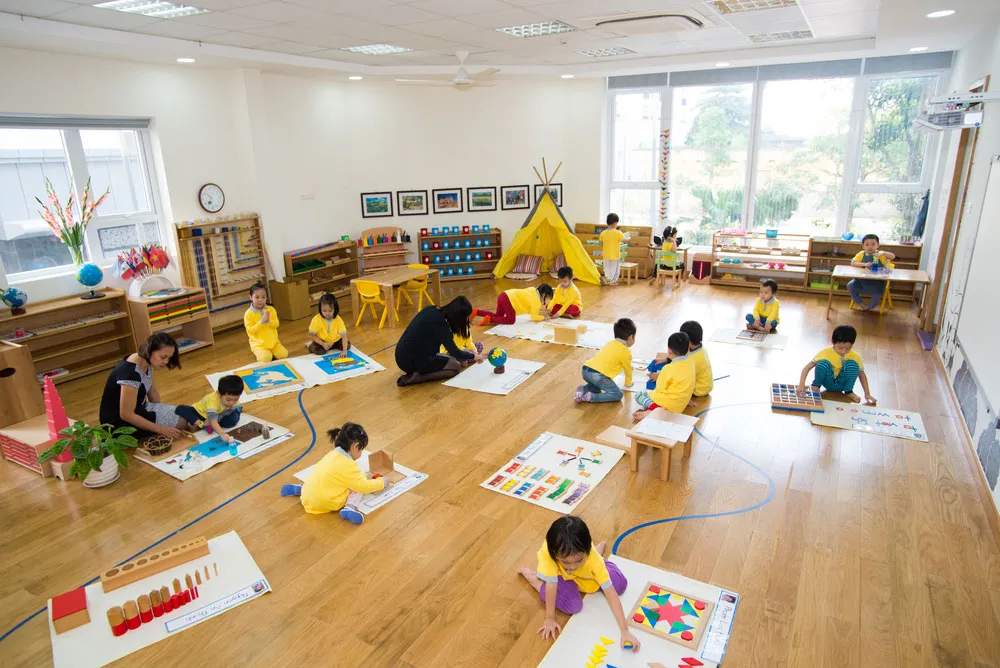Introduction
Montessori education has revolutionized the way children approach learning and development. Founded by Dr. Maria Montessori in the early 1900s, this educational philosophy is based on the belief that children learn best in an environment that fosters independence, curiosity, and creativity. This article will delve into the principles of Montessori education, its benefits, and how it is shaping the future of schooling.

What is Montessori Education?
Montessori education is based on a child-centered approach, where students take an active role in their learning journey. It emphasizes hands-on learning, self-directed activity, and collaborative play. The method focuses on the whole child, considering not just academic development but emotional, social, and physical growth as well.
At the heart of Montessori education is the concept of freedom within limits. Children are free to explore their interests and work at their own pace, but they are also guided by structured routines and boundaries that help them thrive. This method encourages children to be responsible for their own learning, promoting confidence and self-discipline.
Core Principles of Montessori Education
Montessori education is built upon several core principles that guide the learning process. These principles include:
1. Respect for the Child
One of the central tenets of Montessori education is respecting the child as an individual. Teachers observe children closely, understanding their unique learning styles and needs. Instead of controlling the learning process, teachers act as guides, creating an environment where children can explore and discover for themselves.
2. Learning through Exploration
In a Montessori classroom, children are provided with a variety of hands-on materials designed to engage their senses. These materials allow children to manipulate objects, solve problems, and gain a deeper understanding of concepts through direct experience rather than passive learning. This process of exploration fosters a love of learning and critical thinking skills.
3. Mixed-Age Classrooms
Another key aspect of Montessori education is the use of mixed-age classrooms. Children of varying ages work together, allowing younger children to learn from older peers and giving older children the opportunity to teach and mentor. This creates a collaborative and supportive environment that encourages both independence and social interaction.
4. Prepared Environment
Montessori classrooms are carefully designed to support the learning process. The environment is organized, inviting, and child-friendly, with materials that are easily accessible. The space is arranged to encourage movement, exploration, and interaction, allowing children to engage in activities that interest them and promoting autonomy.
Benefits of Montessori Education
Montessori education offers a wide range of benefits that extend beyond academics. Some of the key advantages include:
1. Fosters Independence
By giving children the freedom to make choices, Montessori education encourages independence and self-reliance. Children learn to make decisions, solve problems, and take responsibility for their actions. This sense of independence helps children develop confidence and a positive self-image.
2. Encourages Creativity
Montessori education emphasizes creativity and self-expression. Children are encouraged to think outside the box, explore new ideas, and develop their own solutions to problems. The open-ended nature of Montessori materials fosters innovation and creative thinking.
3. Promotes Social Skills
In Montessori classrooms, children work together in a collaborative and respectful environment. This helps them develop strong social skills, including communication, cooperation, and conflict resolution. The mixed-age structure allows children to interact with peers of various ages, building empathy and understanding.
4. Supports Individual Learning Styles
Every child is unique, and Montessori education recognizes this by allowing children to learn at their own pace. Whether a child is excelling in one area or needs additional support in another, the Montessori method provides a flexible environment that meets each child’s needs.
How Montessori Education is Changing the Future of Learning
Montessori education is gaining widespread popularity as more parents and educators recognize its effectiveness in fostering well-rounded, independent learners. The approach is becoming increasingly relevant in today’s fast-paced world, where creativity, critical thinking, and collaboration are key to success.
As the world continues to evolve, the Montessori method is positioning itself as a model for 21st-century education. With a focus on personalized learning, real-world problem-solving, and social-emotional development, Montessori classrooms are preparing children to become confident, capable leaders in an ever-changing global landscape.
Conclusion
Montessori education offers a transformative approach to learning that nurtures the whole child. By emphasizing independence, creativity, and respect, it empowers children to take charge of their own education and develop the skills they need to succeed in life. As more schools adopt Montessori principles, it is clear that this innovative method is shaping the future of education, creating a generation of learners who are prepared to navigate an increasingly complex world.